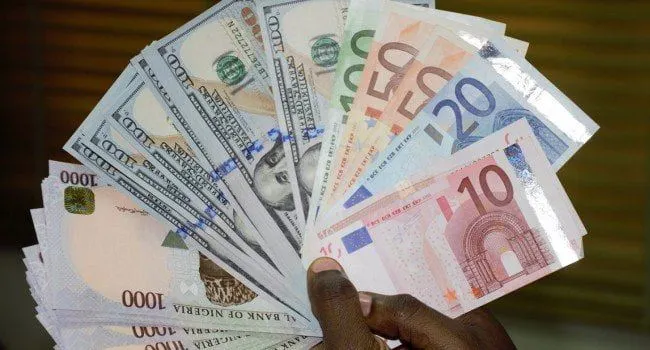On February 21, 2024, the Nigerian Naira experienced a significant depreciation against the US dollar, reaching an intra-day high of N1,755.
This surge in the exchange rate coincided with increased demand pressure, intensifying the ongoing depreciation trend of Nigeria’s currency.
Meanwhile, the official exchange rate settled at N1,542.58 to $1 on the same day, highlighting the volatile nature of the currency.
Data from the Nigerian Autonomous Foreign Exchange Market (NAFEM) revealed a modest appreciation of 0.56%, with the Naira closing at N1,542.58 to a dollar. This indicates a decrease of N8.66 or a 0.56% increase compared to the previous day’s closing rate of N1,551.24.
The intra-day high recorded a historic peak of N1,755/$1, while the intra-day low stood at N1,050/$1, reflecting a significant spread of N705/$1.
Forex turnover at the close of trading amounted to $172.14 million, representing a 21.82% increase compared to the previous day, according to data from the official NAFEM window.
However, in the parallel forex market where forex is unofficially traded, the Naira depreciated against the dollar, with the exchange rate quoted at N1,830/$1. This reflects a 7.10% decrease from the previous day’s rate of N1,700.
Similarly, the Great British Pound (GBP) declined to £1/N2,210 from £1/N2,120 the previous day, marking a notable decrease of 4.07%. Additionally, the Naira weakened against the Euro by 2.43%, closing at N1,855/EUR1 compared to N1,810/EUR1 reported the previous day.
In the cryptocurrency market, where forex is transacted using stablecoins, the Naira settled at N1,876.50/$1.
ENTREPRENEURNG reported actions taken by the crypto trading platform, Binance, to adjust trading by Nigerians on its platform in response to unusual currency movement, aiming to protect users and prevent abuse. The company emphasized that its platform is market-driven and not intended to dictate currency pricing in Nigeria.
This development follows unconfirmed reports of the Central Bank of Nigeria (CBN), in collaboration with other government agencies, allegedly ordering Binance to set a cap on Nigerian traders selling USDT.


